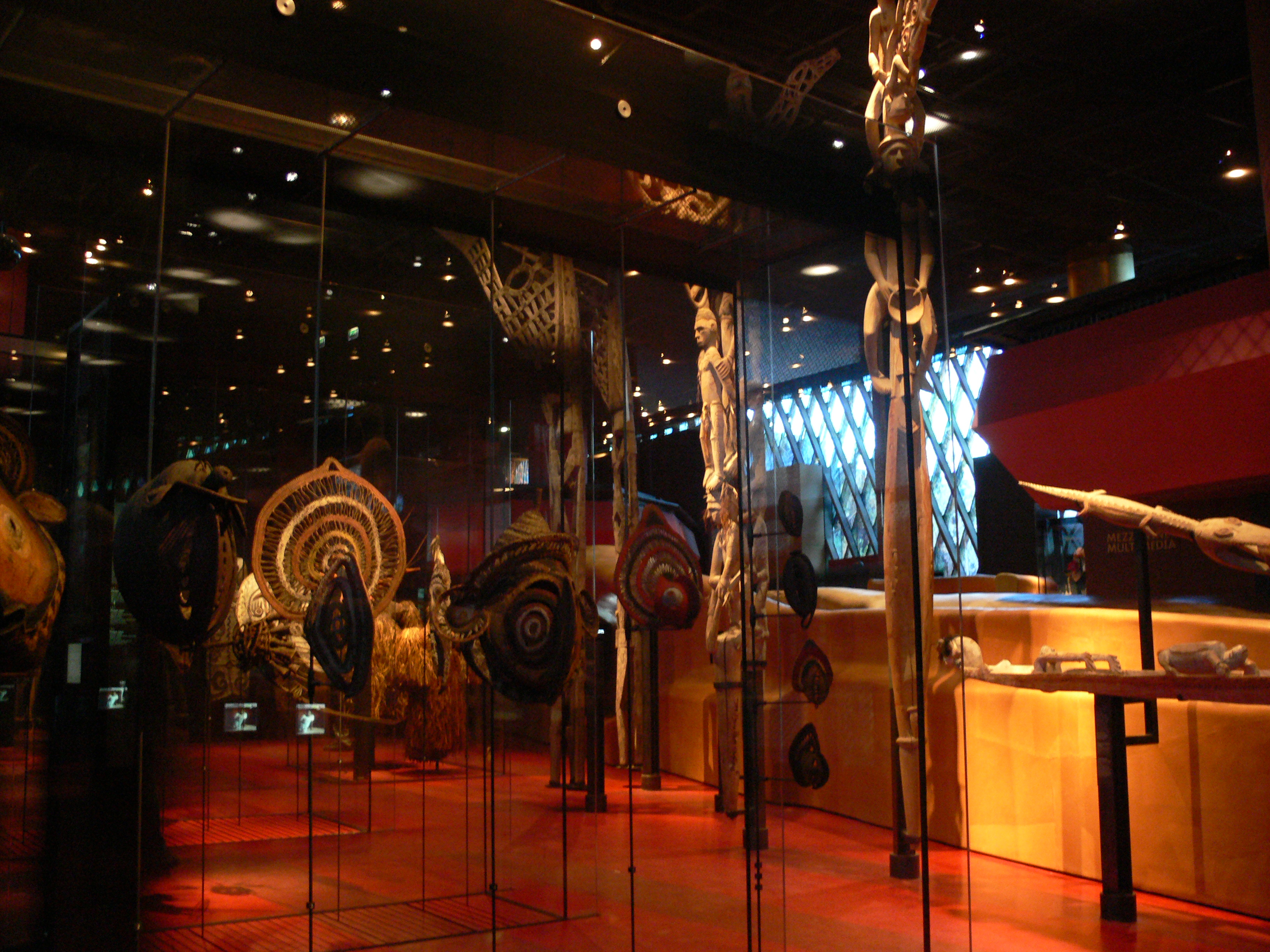During a tour of West Africa in November 2017, French President Emmanuel Macron visited Ouagadougou, the capital of Burkina Faso. There he uttered a remark with high stakes for Eurocentrism and the living embers of its colonial nature:
“I cannot accept that a large part of the cultural heritage of several African countries is in France,” he said. This led to a promise that France would return African artworks and artifacts during Macron’s term, which led to the president commissioning a report in March surveying African works still captive in French museums.
The report was telling. It revealed that over 90 percent of Africa’s cultural heritage, in the form of everything from statues to thrones to ritual tools, is outside of Africa in the hands of colonial museums and wealthy private collectors. France alone holds 90,000 sub-Saharan artifacts, 70,000 of which are in a single museum.
That would be the Quai Branly Museum in Paris, which focuses exclusively on parading treasures pilfered from indigenous communities in Asia, Oceania, Africa, and Turtle Island, which they benevolently say “illustrate the richness and cultural diversity of the non-European civilisations.”
In the words of professor Bénédicte Savoy, co-author of the report, “European museums have almost everything, and African museums have almost nothing.” Britain and Germany both own even more pillaged African artworks than France does.
The Report: ‘Towards a New Relational Ethics’
Savoy, a French art history professor, co-wrote the report with Senegalese economics professor Felwine Sarr. They titled their 108 pages of findings “Towards a new relational ethics,” and presented the report to the president on November 23rd. His reason for commissioning it was to determine concrete steps to take towards restitution of artifacts plundered during the height of France’s colonial era.
In the report, Savoy and Sarr ask Macron to eschew “political prudence and museum anxiety” to make swift and permanent restitutions to the African continent, lifting the French paternal policies that present obstacles to doing so.
As a response, Macron is returning 26 bronzes to the Republic of Benin, a small but important step in honoring his promise and rescinding racist cultural authority over a sovereign nation.
The Backlash: ‘A Pandora’s Box of Restitution’
The return of these 26 pieces has colonizers and capitalists biting their nails because it sets a precedent. According to Artnet, Macron’s report “has been met with horror by some French museum and gallery directors, who fear this will open a ‘Pandora’s Box’ of restitution claims that will empty French museums of their treasures.”
Particularly hostile has been the president of the Quai Branly Museum and senior French museum official Stéphane Martin, who said the “big problem” with the report is that it “puts historical reparations over the contribution museums make.” The implication is a well worn colonial subtext: what African nation would be competent to preserve their own treasure?
Martin also argues that sovereign nations have no business determining what is and is not a part of their own culture. That, he seems to believe, is France’s job. “It would be a huge overhaul of French law for a foreign state to have equal footing with the French nation in determining what is rightfully or not a part of its own heritage,” he said.
The Other Backlash: ‘Difficult to Pop the Champagne’
But champions of restitution and sovereignty note that museum hand-wringing over the return of these artifacts, and the paternal language that accompanies it, are the racist mechanics of living colonialism. If France (or at least a senior French official) believes itself to be the only one capable of properly preserving the other artifacts of other cultures, that raises some important questions. For example, why should these artifacts be preserved behind glass in the first place?
“[T]he argument for ‘proper preservation’ betrays a carceral ethic that should not be left unchallenged,” writes Kenyan journalist Christine Mungai. “For some of these objects, their circulation in the community, and their inevitable decay and replacement is part of their cultural value.” Needless to say, their community use and decay may not carry much currency with the European people who won’t be allowed access to enjoy it.
Mungai points out how absurd it is that “people are seriously arguing that the cultural artefacts need to be protected from the very cultures that created them. The suggestion that African people have to prove that they are worthy of their own cultural heritage is insulting and absurd,” she adds.
Not to mention that while returning 26 bronzes is a step forward, it’s a drop in the bucket. Critics like Mungai would see more radical steps taken, in keeping with the dramatic recommendations of the Savoy-Sarr report. Any less, and she says she finds it “difficult to pop the champagne and declare a brave new world”.
The Precedent: ‘You Have Our Soul’
Once Macron returns the 26 bronzes to Benin, other African nations may cry out for the return of their heritage, too. And once France starts issuing restitutions, past and current colonial aggressors like Britain and the US will likely feel pressure to follow suit.
If Paris, New York and London don’t get to keep all the treasures of the world’s non-white peoples, their tourist industries could take a hit as museum revenues fall. How ever would the world go on, wonders the dollar-centric colonial?
In parallel with the events between France and Benin, the Governor of Easter Island Tarita Alarcón Rapu literally begged the British Museum last month to return their moai, which the museum has held captive for 150 years, and which Governor Rapu referred to as their ancestor.
“I believe that my children and their children also deserve the opportunity to touch, see and learn from him,” Rapu said through tears. “We are just a body. You, the British people, have our soul.” If Macron is willing to return 26 bronzes to Benin, the world might look to Britain to return the maori. And who even knows what New York will have to do with half the Met.
The Future: ‘No Conditions Attached to the Restitutions’
For the world’s museum lovers, the future by no means looks bleak. If you’ve ever visited the Chinese jade museum in Shanghai, or the Mayan one in San Jose, you know what a treat it is to see historical art and artifacts presented in their right cultural context. If you’ve seen Uluru since it was returned to its indigenous custodians in 1985, you know how eye opening it is when the signage, info booths, visitor’s centers and rules are all written from an indigenous perspective instead of a Eurocentric colonial one. The restitution of cultural heritage does not mean the death of museums. It means we get decolonized museums. That will be reason to celebrate for everyone.
“There should be no conditions attached to the restitutions,” urges Savoy in the report. She says “we are dealing with the case of a continent which has almost nothing left of its history when we have it all. The aim is not to empty Western museums to fill up the African ones, but to invent a new relationship based on ethics and equity.”
BeninDecolonizeFranceMacronMuseumsQuai BranlySavoy-Sarr Report


